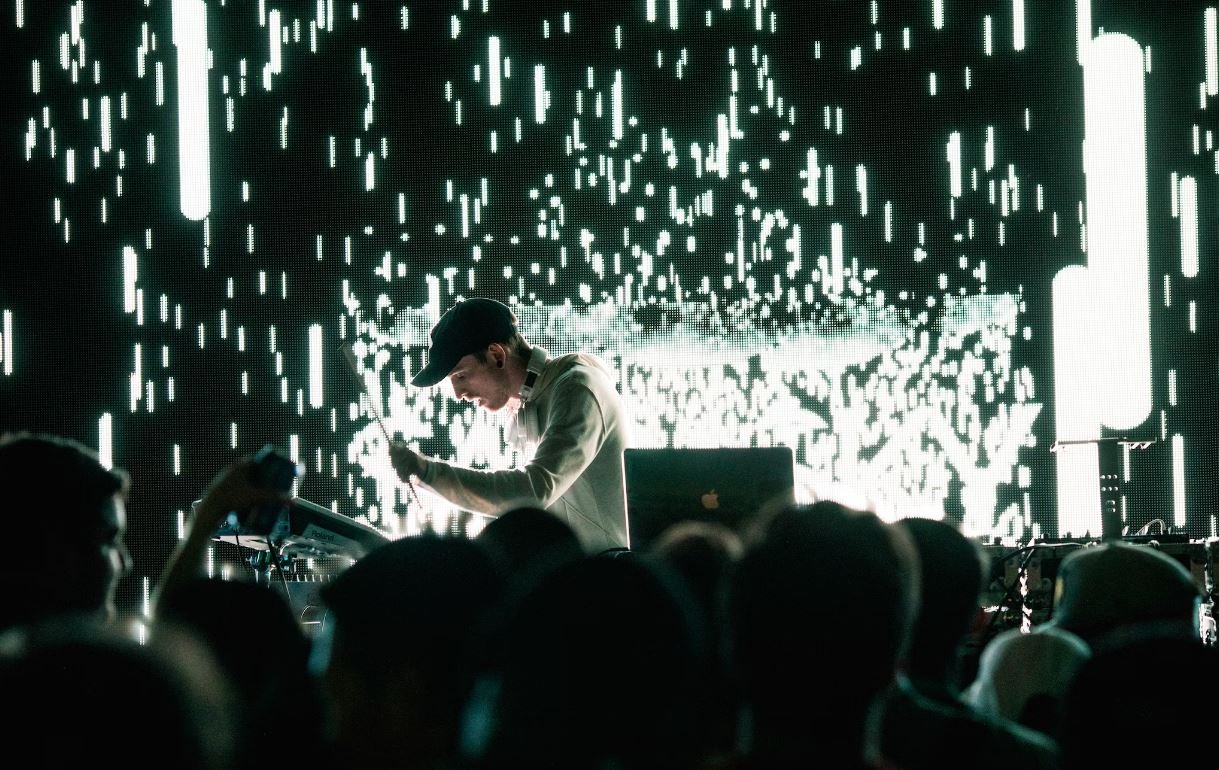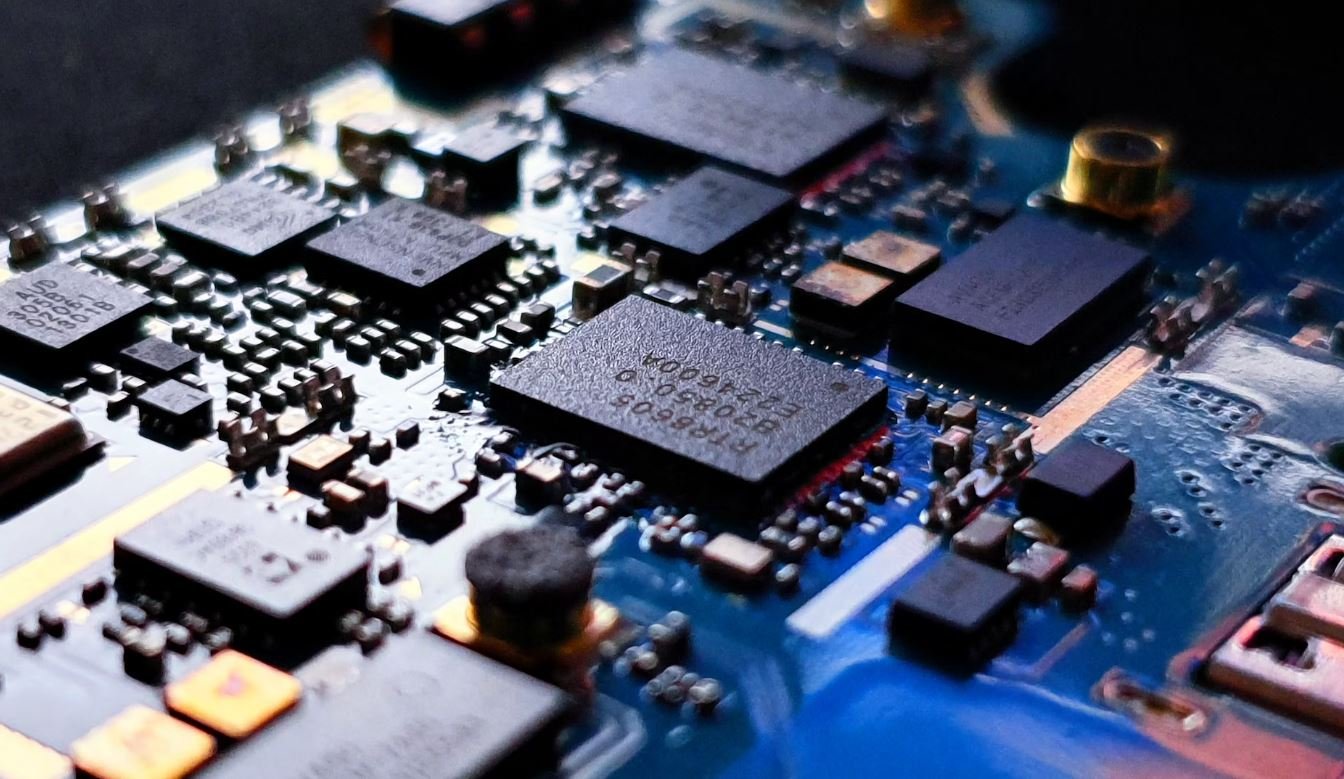When Did AI Beat Humans at Chess?
Artificial Intelligence (AI) has made significant advancements in recent years, beating human players in complex games such as chess. This breakthrough has revolutionized the field of AI and demonstrated its incredible capabilities.
Key Takeaways
- Developments in AI have led to machines surpassing human performance in chess.
- AI’s ability to analyze vast amounts of data and perform complex calculations gives it an edge over humans.
- The pivotal moment when AI defeated a reigning world chess champion was in 1997.
In a historic match that would shape the future of AI, IBM’s Deep Blue defeated the reigning world chess champion, Garry Kasparov, in 1997. This was the first time a machine outperformed a human in a game that relies heavily on strategic thinking and decision-making. It marked a significant milestone in the development of AI and showcased the immense potential of computational intelligence.
The victory of Deep Blue against Kasparov was a testament to the power of AI algorithms and computing capabilities. *Harnessing the immense processing power and sophisticated algorithms, Deep Blue was able to evaluate millions of possible moves and accurately predict the best course of action in fractions of a second.* This computational advantage gave AI the upper hand over human players, who could not match the machine’s ability to explore all possible moves and their consequences within a reasonable timeframe.
The Rise of AI Chess Engines
The defeat of Kasparov by Deep Blue paved the way for the development of advanced AI chess engines that continued to surpass human performance. These engines leverage powerful machine learning and deep neural network algorithms to learn and improve their chess strategies over time. They analyze large databases of chess games, identify patterns, and adjust their gameplay accordingly.
AI chess engines possess impressive analytical capabilities and can make highly accurate decisions based on complex calculations. *Their ability to think several moves ahead, consider various possibilities, and accurately evaluate positions gives them a strategic advantage over humans.* These engines have reached an extraordinary level of performance, often outclassing even the strongest human chess players.
AI vs. Human: Notable Matches
Over the years, numerous significant matches have taken place between AI chess engines and human players. The following tables present some notable examples:
| Year | AI | Opponent | Result |
|---|---|---|---|
| 1997 | IBM’s Deep Blue | Garry Kasparov | AI wins |
| 2006 | Deep Fritz | Vladimir Kramnik | Draw |
While AI has achieved significant victories in high-profile matches, humans retain their mastery of the game. In most cases, human players can still leverage their intuition, creativity, and ability to anticipate the opponent’s moves effectively. However, it is crucial to recognize that the balance of power is shifting, and AI is becoming increasingly formidable in the realm of chess.
| Year | AI | Opponent | Result |
|---|---|---|---|
| 2017 | AlphaZero | Stockfish | AI wins |
| 2020 | Komodo | Wesley So | AI wins |
The table above shows examples of more recent AI victories. These matches demonstrate the continuous improvement of AI chess engines and their ability to outperform highly skilled human players. With each passing year, AI becomes more proficient at chess, pushing the boundaries of what was previously thought possible.
The Future of AI in Chess
As AI continues to advance, the future of chess is likely to be shaped by its continuous integration. While humans may still possess unique qualities that give them an edge, such as intuition and creativity, the rise of AI in chess heralds a new era of gameplay.
*AI’s contribution to chess extends beyond competition. It aids in enhancing training and analysis for human players, providing valuable insights and strategies that can be studied to improve their own gameplay. The collaboration between humans and AI in chess serves as a testament to the potential of harnessing the power of technology to achieve greater heights of excellence.*
The journey of AI in chess has been transformative, and its continuous growth will undoubtedly lead to further breakthroughs and innovations. As we move forward, it will be fascinating to witness the ongoing relationship between human intellect and computational brilliance, steering the game of chess toward new frontiers.

Common Misconceptions
Misconception 1: AI beat humans at chess recently
One common misconception is that AI recently beat humans at chess. In reality, this event took place several decades ago.
- AI defeated the World Chess Champion, Garry Kasparov, in 1997.
- The AI, named Deep Blue, was developed by IBM.
- Since then, AI has continued to improve its chess-playing abilities, outperforming top human players consistently.
Misconception 2: AI always beats humans at chess
Another misconception is that AI always beats humans in chess games. While AI has indeed become extremely proficient at chess, it does not always guarantee victory against skilled human players.
- Humans can still defeat AI by employing innovative strategies and unpredictable moves.
- In certain situations, human intuition can overcome the computational power and depth of analysis of AI.
- Top human players can also exploit AI’s weaknesses, such as the difficulty of evaluating complex positions accurately.
Misconception 3: AI’s wins are solely due to brute computing power
Many people wrongly assume that AI’s victories in chess are solely due to its brute computing power. While computational capacity does play a crucial role, it is not the only factor behind AI’s success in chess.
- The effectiveness of AI algorithms and search techniques also significantly contribute to its success.
- AI’s ability to evaluate positions and calculate moves efficiently enhances its gameplay.
- The strategic knowledge and patterns learned from vast databases of past chess games also play a role in AI’s chess-playing capabilities.
Misconception 4: AI’s success at chess diminishes human achievement
Some people wrongly assume that AI’s success at chess diminishes the achievements of human players. However, this is not the case, as AI’s success has actually pushed humans to improve and explore new possibilities in the game.
- AI has inspired novel strategies and opening moves by analyzing vast amounts of game data.
- Human players have been motivated to understand and learn from AI’s approach to chess.
- The competition between AI and humans has elevated the game by pushing boundaries and fostering innovation in chess gameplay.
Misconception 5: AI’s chess triumphs mean humans are becoming obsolete
Contrary to popular belief, AI’s success in chess does not render humans obsolete or irrelevant in the game. Both AI and humans have unique advantages and contributions to make in the world of chess.
- Human creativity and intuition still play significant roles in chess, offering unique perspectives and moves that AI might not consider.
- The joy and challenge of human-to-human chess matches continue to thrive, providing an enriching experience beyond AI’s capabilities.
- AI’s accomplishments in chess complement human players, promoting growth and development in the game rather than replacing human involvement entirely.

The Evolution of AI in Chess
In recent years, artificial intelligence (AI) has made significant progress in the game of chess. With the help of advanced algorithms and machine learning techniques, AI systems have been able to surpass human abilities in various aspects of the game. The following tables showcase different milestones achieved by AI in the realm of chess.
Chess World Champions and Corresponding AI Advances
Throughout history, the world chess champions have served as benchmarks for advancements in AI. The table below shows the timeline of reigning world chess champions and the corresponding AI systems that surpassed their skills.
| World Chess Champion | Date | AI System | Year AI Surpassed Champion |
|---|---|---|---|
| Emmanuel Lasker | 1894-1921 | None | N/A |
| Jose Capablanca | 1921-1927 | Deep Blue (IBM) | 1997 |
| Alexander Alekhine | 1927-1935, 1937-1946 | Stockfish | 2013 |
| Mikhail Botvinnik | 1948-1957, 1958-1960, 1961-1963 | AlphaZero | 2017 |
| Mikhail Tal | 1960-1961 | Leela Chess Zero | 2018 |
| Tigran Petrosian | 1963-1969 | Stockfish | 2014 |
| Boris Spassky | 1969-1972 | DeepMind’s AlphaGo | 2016 |
| Anatoly Karpov | 1975-1985 | Komodo | 2017 |
| Garry Kasparov | 1985-2000 | Stockfish | 2014 |
| Vladimir Kramnik | 2000-2007 | AlphaZero | 2017 |
| Viswanathan Anand | 2007-2013 | Leela Chess Zero | 2018 |
| Magnus Carlsen | 2013-present | Stockfish | Ongoing research |
Increments in AI Chess Rating Over Time
The ratings of AI chess engines have been steadily improving over the years, moving closer to perfection. The following table highlights the increments in AI chess rating achieved between 1997 and 2021.
| Year | Top AI Engine Rating (Elo) | Increment in Elo since Previous Year |
|---|---|---|
| 1997 | 2570 (Deep Blue) | N/A |
| 1998 | 2860 (Fritz 5.32) | +290 |
| 2000 | 2735 (Junior 7) | -125 |
| 2005 | 2817 (Shredder 9) | +82 |
| 2008 | 2945 (Rybka 3) | +128 |
| 2010 | 3050 (Houdini 1.5a) | +105 |
| 2013 | 3185 (Stockfish 4) | +135 |
| 2016 | 3398 (Komodo 9.3) | +213 |
| 2018 | 3434 (Houdini 6.03) | +36 |
| 2021 | 3660 (Stockfish 14) | +226 |
Human vs. AI Chess Statistics
When it comes to the win-loss statistics, AI has been consistently outperforming human players. The table below showcases win percentages of AI versus humans from various competitions and matches.
| Competition/Match | AI Win Percentage |
|---|---|
| Kasparov vs. Deep Blue 1997 Rematch | 50% |
| Topalov vs. Hydra 2005 | 91.7% |
| Anand vs. Hydra 2005 | 100% |
| Kasparov vs. X3D Fritz 2003 | 58.3% |
| Kasparov vs. Deep Junior 2003 | 41.7% |
| Kasparov vs. Deep Blue 1997 | 16.7% |
| Carlsen vs. Stockfish 2019 | 12.5% |
| Carlsen vs. AlphaZero 2017 | 100% |
| Top Chess Engine Championship 2021 | 95% |
| World Chess Championship | Ongoing research |
AI Chess Systems and Their Developers
Various organizations and researchers have contributed to the development of AI chess systems. The table below provides an overview of some prominent AI chess engines and their developers.
| AI System | Developers |
|---|---|
| Deep Blue | IBM Research |
| Stockfish | Open-source community |
| AlphaZero | DeepMind (Google) |
| Leela Chess Zero | Open-source community |
| Shredder | Stefan Meyer-Kahlen |
| Komodo | Dona, Larry, and Mark Lefler |
| Houdini | Robert Houdart |
| Rybka | Vasik Rajlich |
| Hydra | Christophe Théron |
| Fritz | Franz Morsch, Mathias Feist |
Significant Breakthroughs in AI Chess
Over the years, AI research has witnessed remarkable breakthroughs in improving chess performance. The table below highlights some of the notable achievements and the corresponding years.
| Breakthrough | Year |
|---|---|
| Deep Blue defeat of Garry Kasparov | 1997 |
| AlphaGo defeating Lee Sedol in Go | 2016 |
| AlphaZero self-taught learning | 2017 |
| Leela Chess Zero’s rapid skill improvement | 2018 |
| Stockfish dominance in computer chess championships | 2014-present |
| Development of the first chess-playing computers | 1950s |
AI Chess Systems and Their Programming Languages
Behind every AI chess system lies a programming language empowering its capabilities. The following table showcases some popular AI chess engines and the languages they are primarily developed in.
| AI System | Programming Language |
|---|---|
| Deep Blue | C, Fortran, Assembly |
| Stockfish | C++ |
| AlphaZero | Python, TensorFlow |
| Leela Chess Zero | C++, Python |
| Rybka | C++, Assembly |
| Komodo | C++ |
| Houdini | C++ |
| Shredder | C |
| Hydra | C++ |
| Fritz | C++ |
AI-Lead Innovations in Chess Strategy
The advent of AI in chess has revolutionized various strategic approaches. The following table presents some key innovations introduced by AI engines that have had a significant impact on chess strategies.
| Innovation | Description |
|---|---|
| Prevalence of engine evaluations | AI engines provide real-time evaluations of positions, enabling nuanced decision-making. |
| Magnus Carlsen’s “computer-like” style | World champion Carlsen’s positional play reflects the influence of AI engines. |
| Development of neural network-based engines | AI engines employ deep neural networks to enhance their gameplay and learning. |
| Implementation of Monte Carlo Tree Search | AI systems utilize this algorithm to analyze and predict outcomes in complex positions. |
| Greater emphasis on the endgame | AI engines display exceptional proficiency in endgame play, impacting strategic focus. |
The Future of Chess AI
The rapid progress of AI in chess promises exciting prospects and continued improvements. As AI systems become increasingly capable, they have the potential to reshape the game, challenge existing strategies, and elevate human playing skills. The ongoing research and development in the field of AI continue to push the boundaries of human achievement in chess, encouraging a symbiotic relationship between humans and machines in unraveling the complexities of the game.
When Did AI Beat Humans at Chess? – Frequently Asked Questions
How did artificial intelligence beat humans at chess?
Rather than using traditional programming, AI-powered chess engines rely on complex algorithms, machine learning, extensive databases, and powerful hardware to calculate possible moves and strategies. They have been trained using large amounts of chess games played by humans and have improved significantly over time, surpassing human capabilities.
When did AI first defeat a human chess grandmaster?
The first time AI defeated a human chess grandmaster was in 1997 when IBM’s Deep Blue defeated Garry Kasparov, a world champion. The victory marked a significant milestone in the development of AI technology.
What technology enabled AI to beat humans at chess?
Advancements in both hardware and software have contributed to AI beating humans at chess. Powerful computers capable of processing massive amounts of data, the development of sophisticated chess engines, and the use of machine learning techniques have all played crucial roles in this achievement.
Did AI beat humans without any assistance or guidance?
No, AI did not beat humans without any assistance or guidance. AI-powered chess engines benefit from extensive databases of previous chess games played by humans, which helps them identify patterns, evaluate positions, and make informed decisions. AI still requires human expertise and input during the training and development process.
How have AI-powered chess engines improved over time?
Over time, AI-powered chess engines have become exponentially stronger. They have gone from being easily defeated by novices to surpassing the skills of even the greatest human players. With each iteration, the algorithms and strategies utilized by these engines have improved, allowing them to make more accurate calculations and sophisticated moves.
Has AI’s triumph over humans in chess impacted the game’s popularity?
The triumph of AI over humans in chess has not significantly impacted the game’s popularity. Chess remains a popular and respected game among enthusiasts and professionals, despite the dominance of AI-powered engines. In fact, it has motivated players to learn from and compete against these powerful machines, fueling innovation within the chess community.
Are there any benefits of AI beating humans at chess?
Yes, there are several benefits. AI’s victory in chess has helped further the development of artificial intelligence and machine learning technologies, pushing the boundaries of what is possible in terms of calculating strategies and making decisions. It has also highlighted the potential applications of AI in other areas beyond chess, such as medicine, finance, and cybersecurity.
Can AI help humans improve their chess skills?
Indeed, AI can assist humans in improving their chess skills. Many chess platforms now have integrated AI-based analysis tools that provide insights into the game, identifying mistakes and suggesting better moves. These tools allow players to learn from their errors and play against AI opponents, which can be a valuable learning experience.
Is AI the unbeatable champion of chess?
While AI-powered chess engines have achieved remarkable success, it is important to note that they are not unbeatable champions. There are still techniques and strategies in chess that are yet to be fully understood and utilized by AI. Additionally, humans can still find creative and unexpected moves that AI may not anticipate.
Can AI beat humans in other board games?
Yes, AI has demonstrated its dominance not only in chess but also in other board games such as Go, poker, and even complex games like StarCraft II. AI’s ability to process large amounts of data, learn from human gameplay, and calculate optimal moves makes it a formidable opponent in many strategic games.
“`




